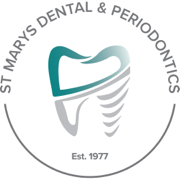Bruxism Explained
Bruxism is a common dental condition characterized by the habit of grinding, clenching, or gnashing one’s teeth. This often occurs unconsciously during sleep, but it can also happen while awake. Bruxism can have negative effects on both dental health and overall well-being. There are two main types of bruxism:
- Sleep Bruxism: This is the most common type of bruxism and occurs during sleep. People with sleep bruxism may grind or clench their teeth together, often with considerable force. It can be associated with other sleep disorders, such as sleep apnoea, and may disrupt sleep patterns.
- Awake Bruxism: Awake bruxism refers to teeth grinding or clenching that occurs while a person is awake. It is often related to stress, anxiety, tension, or other emotional factors, and individuals may not be aware that they are doing it.
Symptoms of Bruxism:
- Teeth Grinding or Clenching: This is the most obvious symptom, often audible to a partner or family member who hears the grinding sound during sleep.
- Jaw Pain or Tenderness: Bruxism can lead to jaw pain, discomfort, or stiffness, especially upon waking up in the morning.
- Headaches: The intense muscle activity involved in bruxism can cause tension headaches, particularly in the temples.
- Tooth Sensitivity or Pain: Bruxism can wear down tooth enamel, leading to increased sensitivity to hot, cold, or sweet foods and beverages.
- Worn, Chipped, or Cracked Teeth: Over time, bruxism can lead to visible dental damage.
- Disrupted Sleep: Sleep bruxism can interfere with your sleep and the sleep of those around you due to the grinding noises.
Causes of Bruxism:
The exact causes of bruxism are not fully understood, but several factors may contribute:
- Stress and Anxiety: Emotional stress, anxiety, anger, frustration, and tension can trigger or exacerbate bruxism.
- Malocclusion (Misaligned Teeth): Teeth that do not fit together properly can lead to grinding as the body attempts to find a more comfortable resting position for the jaw.
- Sleep Disorders: Bruxism can be associated with certain sleep disorders, such as sleep apnoea.
- Lifestyle Factors: Smoking, alcohol consumption, and caffeine intake can increase the risk of bruxism.
- Medications: Certain medications, particularly those used to treat anxiety, depression, and psychiatric disorders, may increase the risk of bruxism.
Treatment and Management:
Treatment for bruxism focuses on alleviating symptoms, protecting teeth, and addressing underlying causes. Some approaches include:
- Nightguards or Mouthguards: These dental appliances are custom-made to fit over the teeth and provide a protective barrier between the upper and lower teeth, preventing further dental damage.
- Stress Management: Techniques such as relaxation exercises, counselling, and stress reduction strategies can help manage bruxism caused by stress and anxiety.
- Behavioural Therapy: For awake bruxism, cognitive-behavioural therapy (CBT) or other behavioural approaches can help address the habit.
- Medications: In some cases, muscle relaxants or medications for anxiety may be prescribed to manage bruxism.
- Dental Corrections: Orthodontic treatment or dental procedures to correct misaligned teeth may help reduce bruxism.
- Lifestyle Changes: Reducing caffeine and alcohol intake and avoiding chewing on non-food items (like pens or nails) can also be helpful.
It’s important to consult a dentist if you suspect you have bruxism, as they can diagnose the condition and recommend appropriate treatment based on your specific situation. Left untreated, bruxism can lead to significant dental problems and discomfort.

